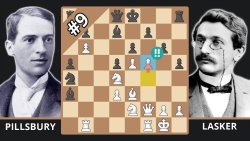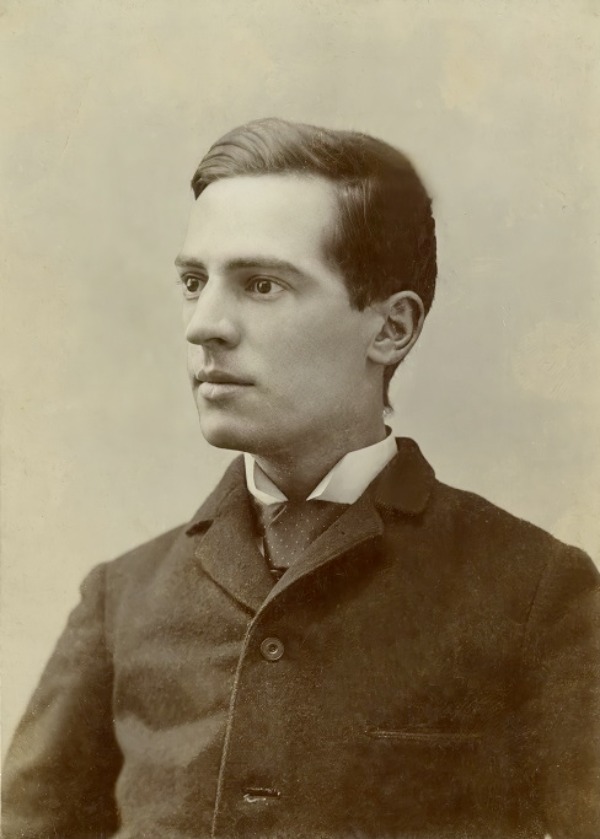
Harry Nelson Pillsbury: The Meteoric Chess Genius
03.03.2024 06:33 | HistoryHarry Nelson Pillsbury remains one of the most fascinating figures in chess history, known for his rapid ascent in the world of chess and his untimely demise.
With a career that burned brightly and briefly, Pillsbury's contributions to chess theory and his legendary blindfold games continue to inspire players around the globe.
Born just outside Boston in 1872, Harry Nelson Pillsbury's journey into the world of chess began at the relatively late age of 16. Despite this, his photographic memory and insatiable hunger for chess knowledge propelled him onto the international stage. Pillsbury's unexpected triumph at the 1895 Hastings tournament marked his emergence as a force to be reckoned with, defeating some of the era's strongest players and establishing himself as a chess prodigy.

Pillsbury's prowess was not limited to traditional chess. He was renowned for his exceptional blindfold chess ability, managing to play 22 games simultaneously in Moscow in 1902. This remarkable feat highlighted not just his strategic depth but also his extraordinary mental capacity for memorization and spatial visualization.
Despite his achievements, Pillsbury's career faced setbacks due to health issues. Diagnosed with syphilis, his condition severely impacted his performance, especially notable in the second half of the St. Petersburg 1895–96 tournament, where after leading, he could only finish third due to his deteriorating health. Nonetheless, he continued to compete, securing the U.S. Chess Championship in 1897—a title he held until his death in 1906.
Pillsbury's legacy in chess is not just about the games he won but also the potential many believed he had. Had his life not been cut short at the age of 33, many speculate that he could have contended for the World Chess Championship. His even record against Emanuel Lasker and victories over other titans of the game attest to his extraordinary talent and hint at what could have been a more illustrious career.
-------------------------------------------------------------------------------------------------------------------------
Harry Nelson Pillsbury's story is one of incredible talent and tragic misfortune. In his brief career, he left an indelible mark on the chess world with his innovative strategies, memorable victories, and the sheer brilliance of his play, often under the most challenging conditions. While his life was short, the legacy of this chess genius continues to inspire and intrigue, serving as a testament to what passion, dedication, and intellect can achieve in the realm of chess.
His achievements, struggles, and the legacy he left behind remind us of the fleeting nature of life and the enduring impact of genuine talent. Pillsbury's name remains synonymous with genius in the chess community, a legacy that, despite the brevity of his life, will continue to be celebrated for generations to come.
----------------------------------------------------------------------------------------------------------------------
Insights and information have been synthesized from comprehensive accounts on Harry Nelson Pillsbury's life and career from Wikipedia, Britannica, the World Chess Hall of Fame, and Chess.com. These sources provide a detailed examination of his contributions to chess, his battle with illness, and the indelible mark he left on the game.
